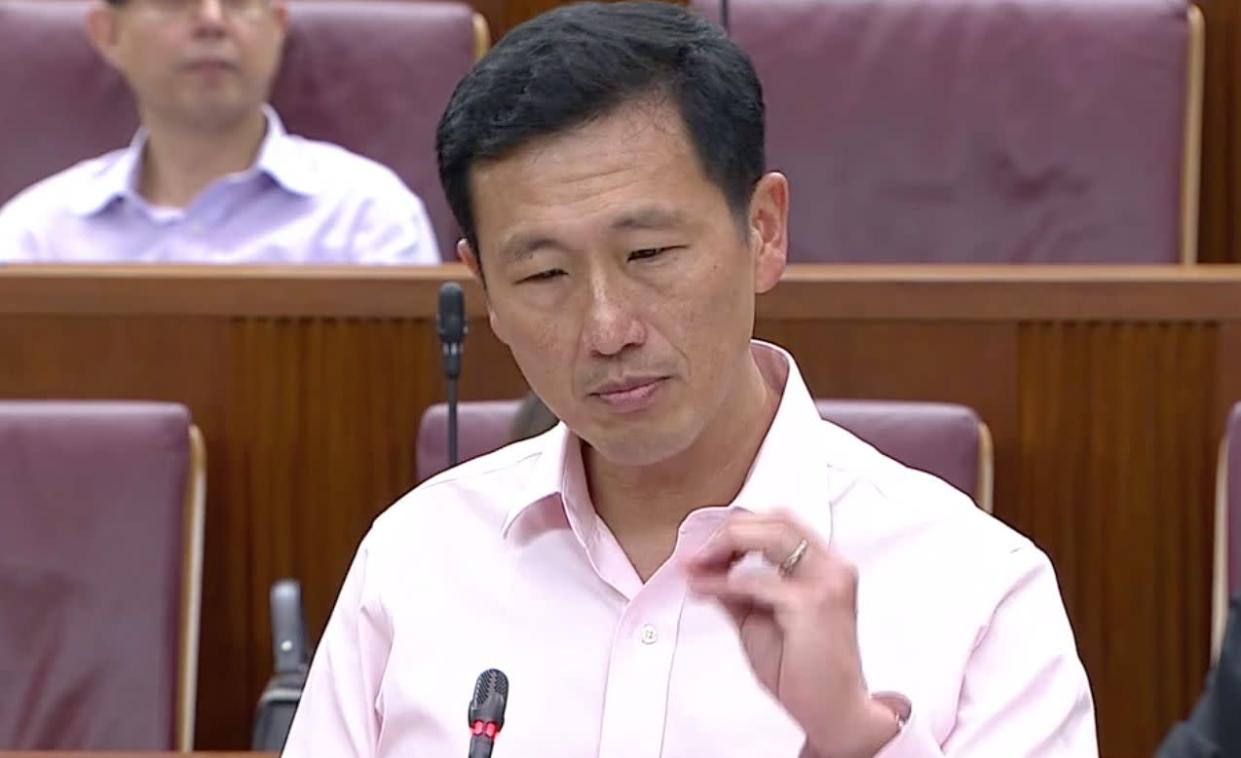Fake news law: Academic research should not be conflated with activism, says Ong Ye Kung

SINGAPORE — Education Minister Ong Ye Kung on Wednesday (8 May) addressed the concerns among some academics that the fake news law could be used to stifle political discourse, saying that research should not be conflated with activism.
Speaking in Parliament during the second reading of the Protection from Online Falsehoods and Manipulation (POFMA) Bill, Ong noted that these academics have expressed such concerns as they may also be activists. As such, they want opinions, satires and criticisms to be explicitly excluded from the law, Ong said.
Giving the assurance that POFMA does not target academics, Ong said, “Let me put it quite plainly. Any activist will not be caught by POFMA if you express an opinion or even hurl criticisms at the government. The law treats all activists equally – whether you are an academic or a man or woman on the street…You are as free as an ordinary citizen to comment on current affairs and critique the government.”
Conversely, any activist – whether you are an academic or a man or woman on the street – who spread online falsehoods that harm society will have to face the law, he added.
Under POFMA, a minister can order or direct an individual to issue a correction alongside content deemed false, or to take down the content.
POFMA will also give ministers the power to direct online sites such as Facebook, Google and Twitter to put warnings next to posts that are deemed false.
The government has said that the new law will help Singapore guard against malicious actors who knowingly spread harmful falsehoods and act against public interest.
But the draft law has triggered widespread concerns including on the definition of what constitutes a falsehood, the powers to be given to individual ministers to deal with falsehood, and the potentially adverse impact it would have on free speech.
Ong assured that academics can express opinions, such as Singapore’s growth model has failed or that the education system is elitist, and POFMA does not apply in this case.
“But in the interest of open debate and given your stature in society and position in a publicly-funded university, please expect government agencies, if we do not agree with you, to put out the data, put out our arguments, and to convince the public otherwise. If that has a chilling effect, please chill.”
Similarly, ministers are held to even higher expectations when it comes to expressing views and members of the public can speak up if they disagree with them, according to Ong.
“We want this interaction and exchange of ideas and opinions to be free of malicious falsehoods which poison the atmosphere and mislead the discourse. POFMA enhances, and not diminishes, democratic public discourse,” he said.
Ong’s comments came after more than 100 academics signed a letter in April, warning that POFMA "may deter scholarship and set precedents harmful to global academia" and curb Singapore’s ambition to be a global education hub.
"We are concerned that the proposed legislation will have unintended detrimental consequences for scholars and research in Singapore," said the academics from institutions in the US, the UK, Australia, Singapore and other parts of Asia.
Ong revealed that as of 6 May, the letter was signed by 124 academics from foreign and local universities including 52 Singaporeans. He said his colleagues from the Ministry of Communications and Information and the Ministry of Law have offered to meet with the academics.
Related stories:
IMDA to set up POFMA office to administer fake news law: S Iswaran
Government must have powers to deal with falsehoods initially and swiftly, not courts: Shanmugam
No need for independent body to assess falsehoods, Parliament is accountable: Shanmugam
Parliament: Appeal against minister's decision under fake news law could be heard in court in 6 days
83% of Singaporeans prefer independent body to assess online falsehoods: survey
COMMENT: 'Fake news Bill' gets a re-run
Three NMPs express concerns over fake news bill, propose amendments
COMMENT: Singapore’s online falsehoods bill will deepen culture of self-censorship
Virtually anything can be deemed ‘misleading’ under fake news law: historian Thum Ping Tjin


